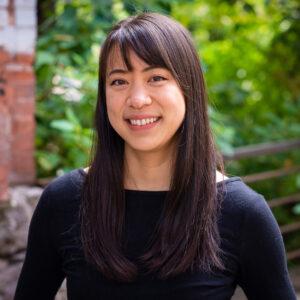
Communications Coordinator
2020 Green Workforce Academy participants paddle a canoe during a debris monitoring field training with Lower Columbia Estuary Partnership and The Blueprint Foundation. Photo credit: Michelle Pearl Gee
As Green Workforce Academy gears up for its 2022 spring cohort, we take a look at the community of partners who make the green jobs training program impactful for Black and Native adults in the Portland metropolitan area.
With 39 participants across seven cohorts having completed the program, the Green Workforce Academy (GWA) has found its rhythm, thanks in part to broad partnerships with Portland-area employers who act as site hosts and potential future employers.
GWA is a paid, five-week training program run by the Green Workforce Collaborative, a partnership formed by several Portland-based organizations. Designed for Black and Native adults who want to learn about and get green industry jobs, the Academy offers culturally responsive classroom sessions. Classroom topics cover a variety of green industry fields, such as habitat restoration, food and agriculture, waste management, and renewable energies. Importantly, the classroom sessions are also paired with an interactive learning experience–such as a training session in the field or an onsite tour–with real, green industry employers in Portland.
“To witness the students make the connections with what they’ve studied in class to real world applications in real time, with real people—particularly those who look like or identify like them—is where the real magic happens,” says Jason Stroman, the program director at The Blueprint Foundation and GWA site supervisor. “It is in these moments that students are genuinely inspired and begin to embrace a whole new realm of what’s possible for their future.”
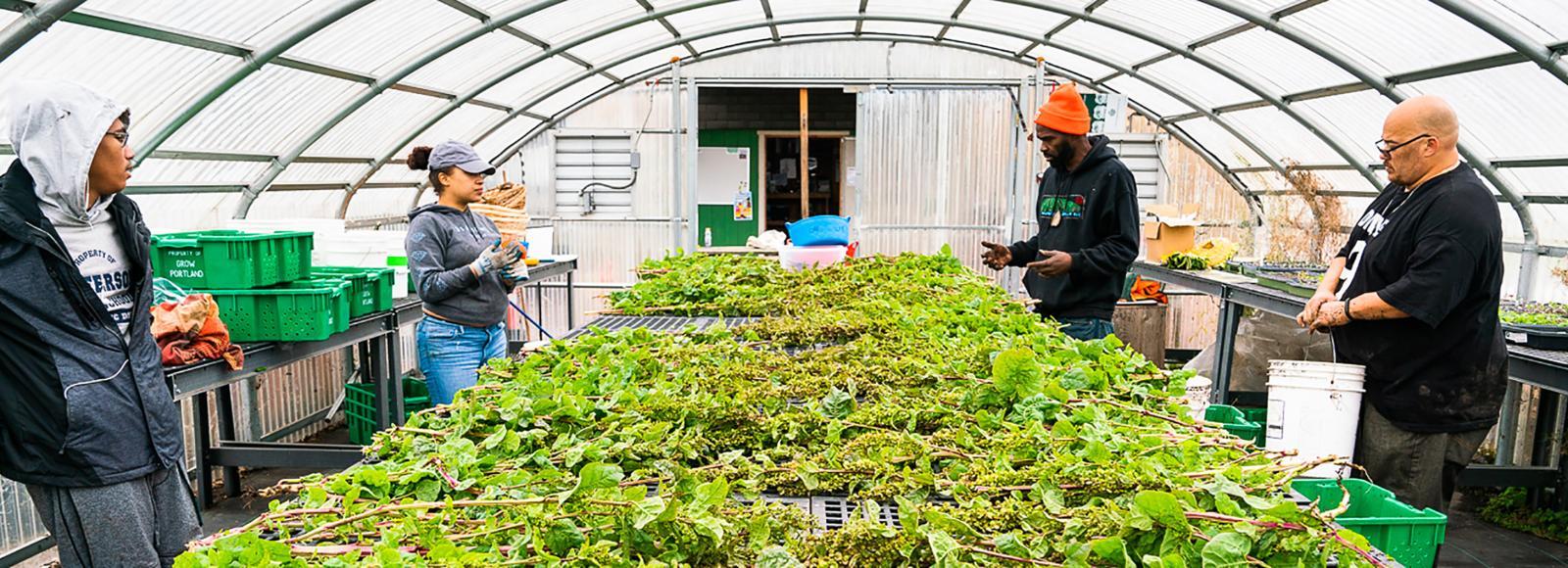
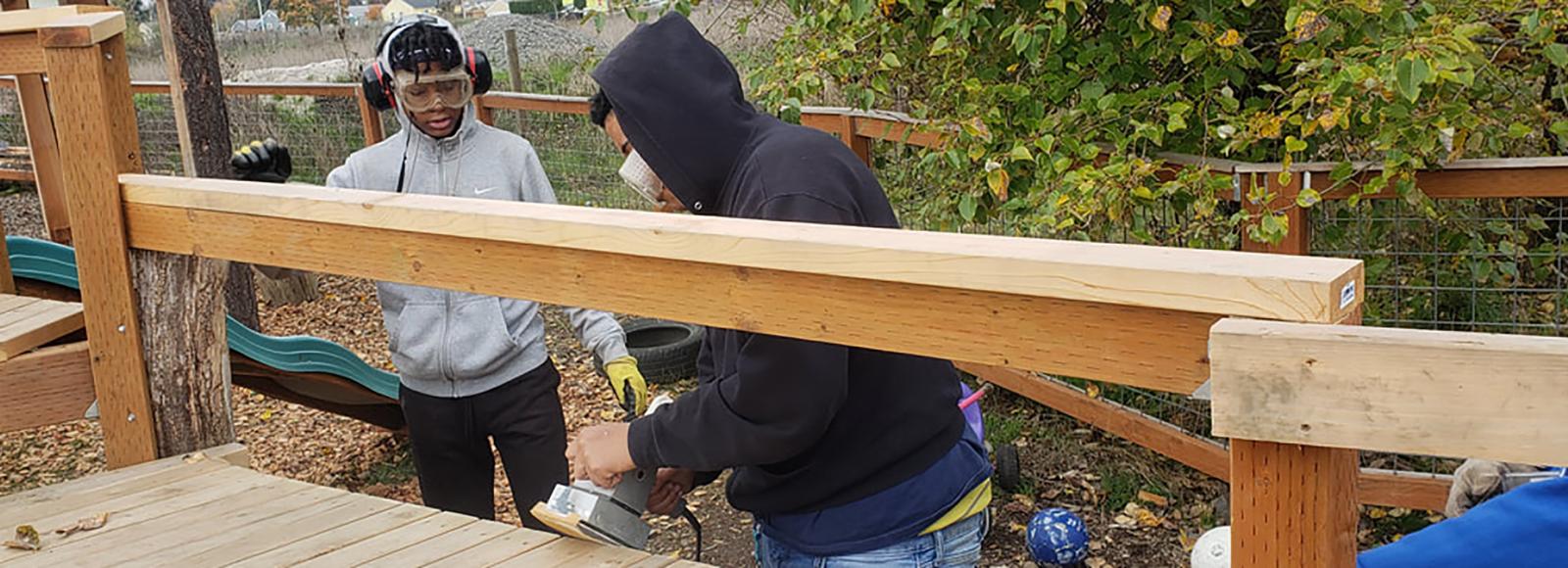
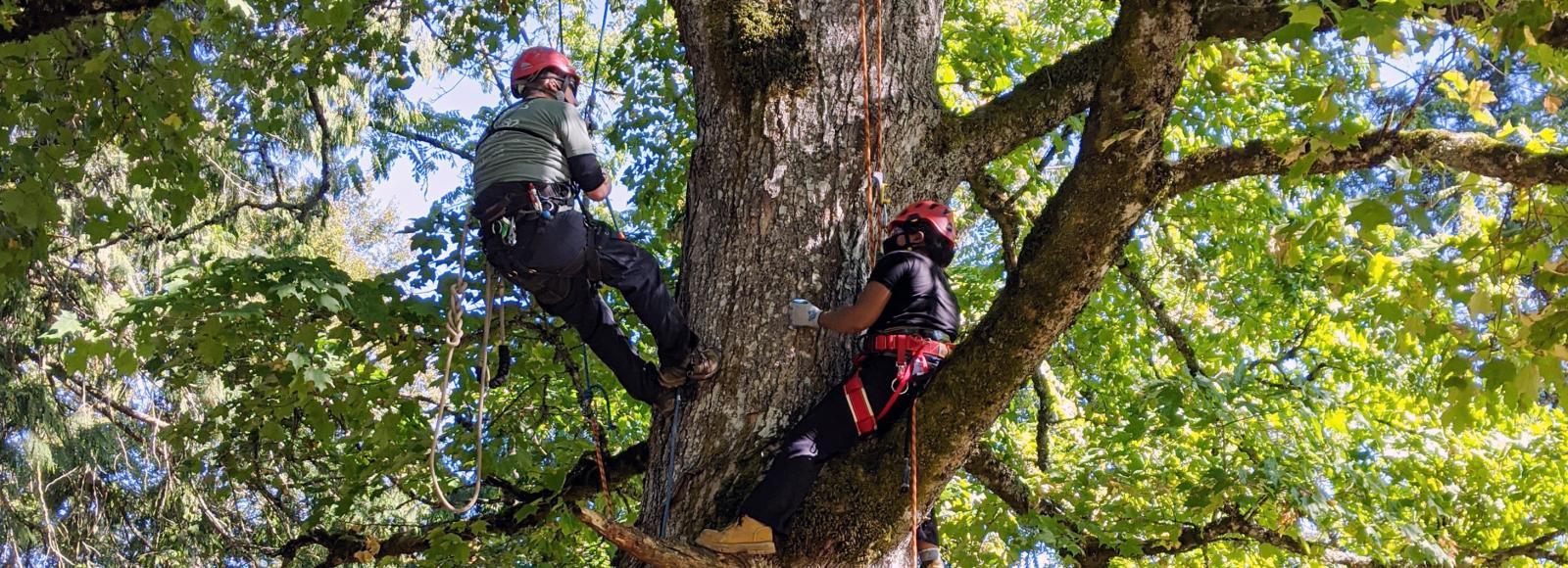
Without a doubt, the employers and partner organizations who provide field trainings and on-site tours are critical to the success of GWA. As the Academy’s alumni base continues to grow, the Green Workforce Collaborative continues to have a need for employers who would like to partner as site hosts. The time commitment is relatively small, around three to five hours required per cohort, with three cohorts offered between May through September.
“Mudbone Grown is always a favorite, because you’re at this beautiful site out in the countryside,” says Teresa Gaddy, the Green Workforce Academy program manager. As a Black-owned farming enterprise, Mudbone Grown provides an idyllic setting for participants to see firsthand how a small farm operates. “They’ve always got music playing, and they’ve got some animals out there. It’s just really soul-feeding to be out there, tending the land and in community with other Black and brown folks.”
The ReBuilding Center, a nonprofit organization that offers building classes and retails recycled building materials, was a Green Workforce Collaborative partner during the initial launch of GWA. Now, as a site host, the ReBuilding Center offers GWA participants a place to learn and gain hands-on experience with the many tools and heavy machinery at the center.
“
It is in these moments that students are genuinely inspired and begin to embrace a whole new realm of what’s possible for their future.
Treecology, a professional arborist service, offers field training for tree care and landscaping services. Participants enjoy a beautiful site visit at a private property, where they learn soft skills such as safety procedures, hard skills such as knot-tying, and, importantly, the thrill of ascending trees to practice arboriculture.
With Green Workforce Collaborative partner Wisdom of the Elders, participants experience habitat restoration in Portland’s natural spaces, with a favorite site being the Leach Botanical Gardens. While there, Johnson Creek Watershed Council will also delve into the rich world of macroinvertebrates and how they are used as water quality indicators.
GWA participants have also gained a variety of environmental experiences with City of Portland’s Bureau of Environmental Sustainability. These have included habitat restoration and freshwater monitoring related to the Bureau’s recent projects, as well as visits to Tryon Creek State Natural Area to examine a newly installed culvert and the engineering behind the project.
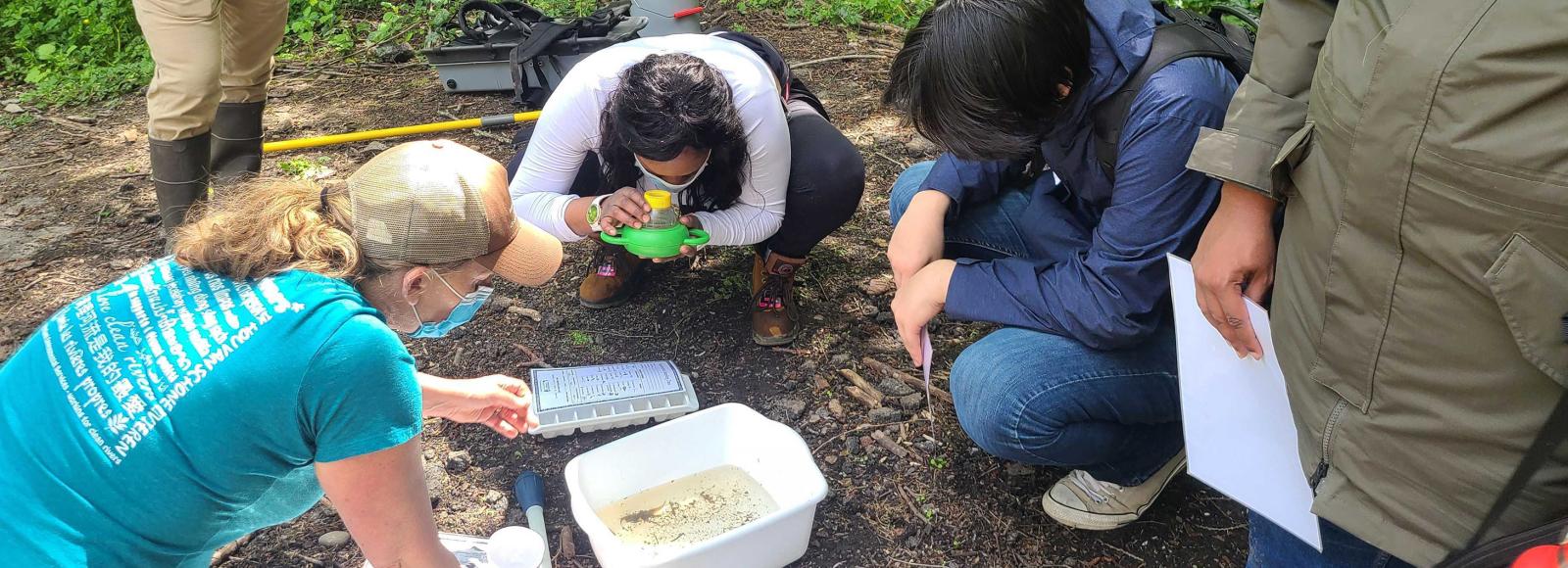
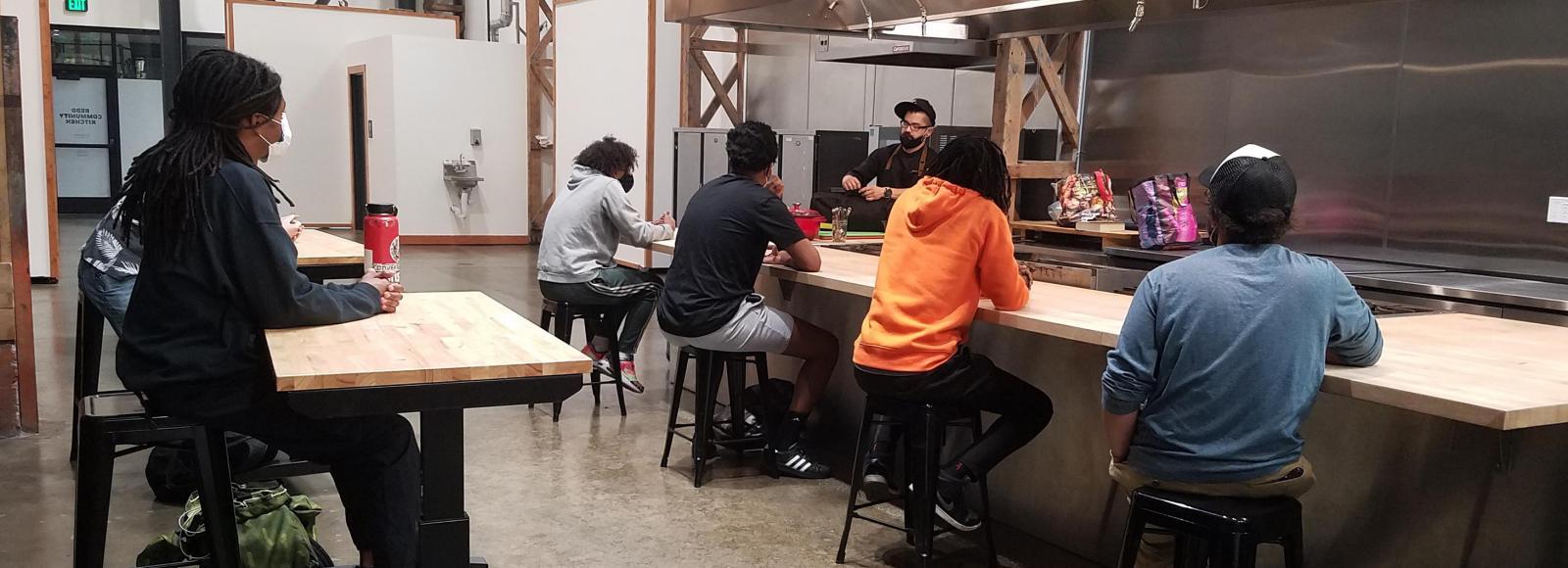
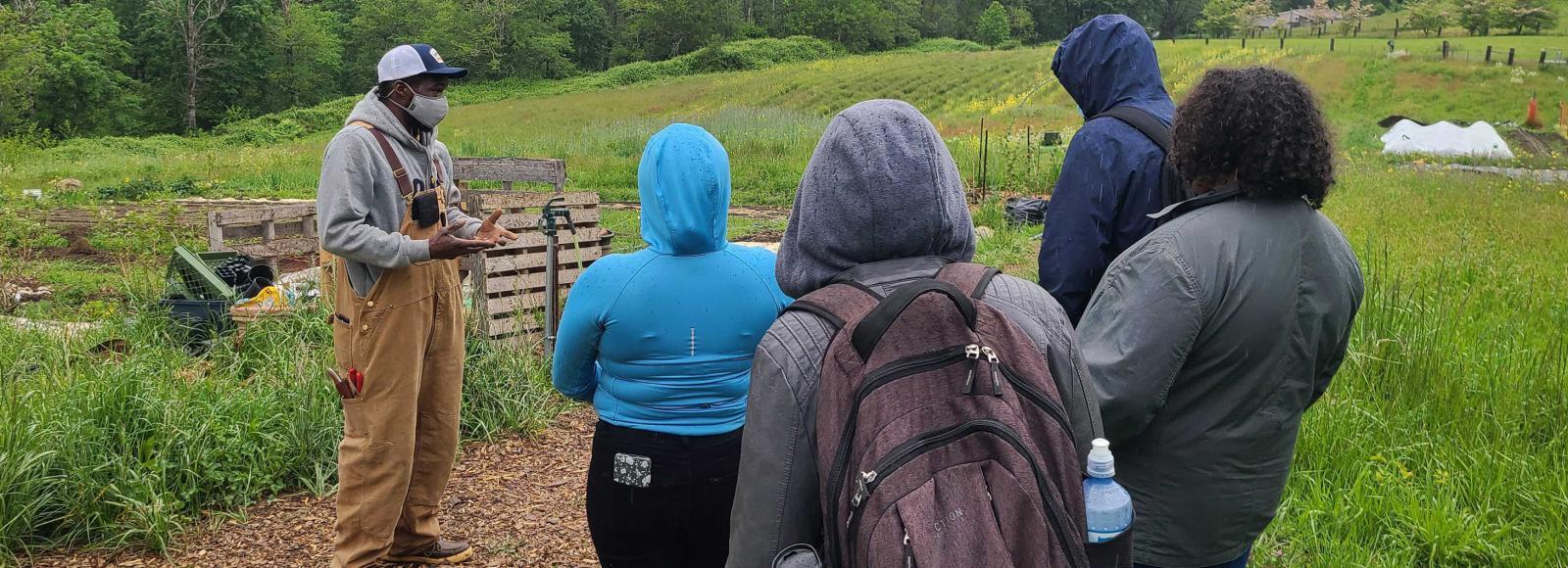
Site visits to x̌ast sq̓it (Good Rain Farm) give students an Indigenous perspective on food sovereignty and First Foods. Tours at Sustainable Northwest Wood, a local lumber yard, provide students with an introduction to the sustainable timber industry. With local solar energy businesses, GWA participants are able to witness solar panel installations and discuss career pathways into the renewable energy industry.
Even on days that may not involve a field trip, the program is graced by a number of guest speakers from green industries: Earth Advantage, a nonprofit dedicated to addressing the impacts of residential buildings, teaches about green building and potential job pathways. Arcadis, a leading company that delivers sustainable design, engineering, and consultancy, discusses habitat restoration and waste remediation for contaminated sites (think: gas station leaks and superfund sites). Andre Uribe, a private chef and owner-operator of Sustainable Meals Oregon, shares his knowledge on sourcing local food for foodservice settings.
And to round out the curriculum, Melissa Hicks from Self Enhancement, Inc. dedicates a full classroom session to financial literacy.
“
Being a Collaborative member is an opportunity to join, support, and learn from each other as we confront systemic inequities and build economic and environmental injustice.
Academy participants join the program for a number of reasons, the most prominent being that they need help finding work, they want work they care about, and they need to make a living wage. “A lot of times they feel they don’t know how to get into the green industry,” says Teresa. “Sometimes it’s something simple, like a participant needs help tweaking their resume. Or they need help with professional networking.”
In addition to the in-classroom and on-site training described above, the Green Workforce Collaborative also works to address this critical step of connecting students with potential employers and are looking to broaden their network of Portland-area employers with the following characteristics:
“Especially if you have a white dominant workplace, I want to know, if we’re sending Black and Brown people to your workplace, that you are willing to do the work [to be a safe, truly inclusive, justice-oriented workplace],” says Teresa. “Because I don’t care how kind or well-intentioned you are, you still have work to do. We all do. Potential employers need to be open and receptive to those hard conversations.”
Interested in becoming a site host or networking as a potential employer? Contact Teresa Gaddy, Green Workforce Academy program manager, at tgaddy@ecotrust.org.
Interested in joining Green Workforce Academy as a participant? Learn more about the program here.
Thanks to Teresa Gaddy, Jason Stroman, Derron Coles, and Megan Foucht for their contributions to this blog post.

PROJECT PAGEE
A paid opportunity for Black, Native, and people of color in Portland who want to learn more about jobs in the green economy.